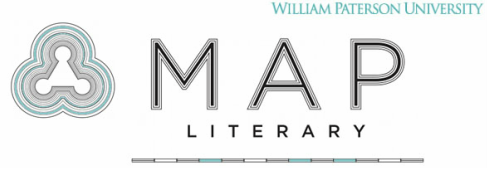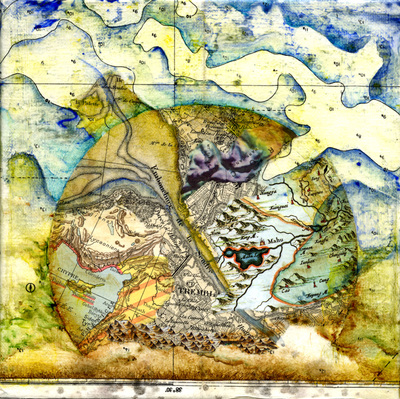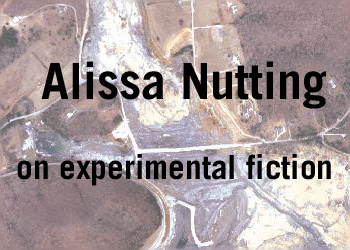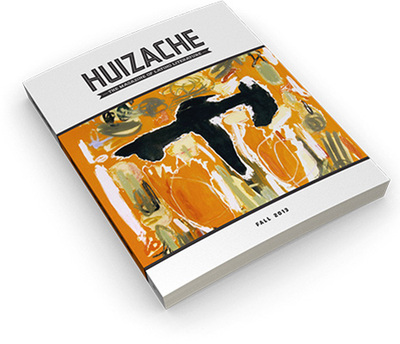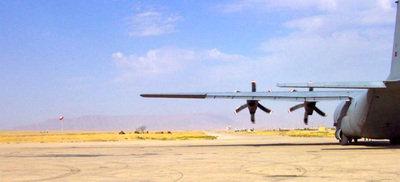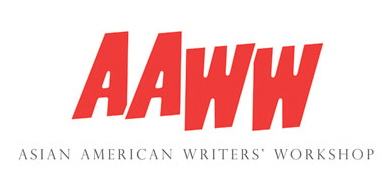MELISSA WILEY
Barbed Wire Fence
BARBED WIRE KEPT OUR COWS HEMMED WITHIN a small square of earth but did little else. Fence with spurs spaced ten inches apart could not extend their life or make calves suckle whose throats sealed before they swallowed. And then the barbed parts tore at my clothes, preventing me from plundering pasture to save them from themselves. Because you cannot help a calf latch onto its mother’s breast when your clothes are peeling from your own sheath of skin. You cannot rescue a naked animal when you too are nearly naked, a balloon-print blouse tearing from its buttons. Exposing the knot of your navel to the stare of the calf determined to starve itself.
So I learned in early days there is no salvation in the world. Only fence that is barbed and that is not. That cows live without shelter from thunderstorms. That rain slakes the thirst of the grass alone, making everyone else shiver. Causing us to cross our arms like mummies when we leave without umbrellas. Impelling cows to run from clouds dark with ink, to crowd beneath pollarded branches forking like dendrites gasping from their membranes for oxygen.
The only place to escape fences, of wire that is barbed and that is not, is within water softened by salt. At a distance too far to swim from any shore. But then your legs are strong and you’re scissor-kicking in ebb tide, when your edges blur like firmament under fog. Because floating in a secluded corner of the Caribbean with all your skin bared to the sun is what you do when the cows have all gone home. Where, though, you don’t know. Only that it’s no home of yours any longer.
Squids release clouds of ink when predators lurch into view. Because too much ink and no one can see what swims in front of them. Because too many words and you have said nothing at all, you’ll realize if you listen.
My dad used to say I never stopped talking to take a breath. And that breathing was good, Melissa. “But how can an octopus breathe underwater, Daddy?” I only queried in response. “And if an octopus and other cephalopods can breathe without coming up for air, why can’t I stay underwater longer in the tub? What is wrong with my lungs, Daddy? What is wrong with them?”
“Nothing, honey,” he sighed. “You’re not a cephalopod, that’s all there is to it. Just a little girl who talks too much.”
“But why? Why am I not a cephalopod? Why am I me instead? Why do I have only two arms and not eight, Daddy, and cannot swim in as many directions?”
And when no answer came, “My arm gets so tired of holding up my umbrella in the rain, Daddy. It would be better to just live underwater, I am sure of it. To be wet all the time so I wouldn’t know the difference. So I wouldn’t get used to being dry to begin with. Better for the cows too, I think, because they don’t even have arms to hold up an umbrella. And they can never cross them when they’re cold like mummies.”
But this he ignored, telling my mom to take me to the city pool to swim for the afternoon instead. Where I had to puncture two holes in my bathing suit just above my heart to safety-pin a number showing we’d paid the fee for admission. Where I swam uneasily, because every time I went the safety pin made two more holes. So that it was only a matter of time before my bathing suit became nothing but a large lacuna with straps attached. So that I would soon have no bathing suit at all, only a safety pin closed against a swatch of skin begun to sunburn.
Of all the things to do in this world, skinny dipping is the most sensible, because all bathing suits become nothing but holes in the end. Easier, then, to walk or cycle or drive to the beach fully dressed, with your towel wrapped like a python around your clavicle. Beneath a tree with undulating leaves on a deserted stretch of shore, you unfurl your towel on sand so soft you forget it was once hard rock smashed by wind.
You remove your clothes, leave them in a heap swarmed by bees, and run high on tiptoe to where the shells collect in shambles. You dive into the water, letting its salt hold you aloft while the waves knead your back with nimble fingers. You smile at the sun with your eyes closed, knowing that if rain starts to fall you’ll only float out the farther. You bounce atop the water feeling your lungs fill and empty themselves of air, expanding and closing seamlessly as the flutter of fins you were born without. Still not knowing why you are you instead of an octopus. Why some calves suckle and some calves don’t bother.
Knowing only that in a world without salvation, there is no need to climb any fences. That you can molt from your own clothes on a barren beach rather than rip them on wire beset by steel thistles.
I swam naked for the first time on Christmas Day, within the wide Caribbean Sea. On an island overrun with vervet monkeys and wild donkeys, none of whom had ever need burst any barrier, so free were they always. Who didn’t know how knots of wire could smart on a belly button cross-hatched with blood that leaks the length of your legs.
My father’s cows were then seven years sold, my father six years buried. The barbed wire fences at a home a home no longer were all long razed, to make for easier mowing by some other farmer reluctant to step into piles of manure. By someone who would rather not bother tending cows at all, who says they make too much mess for too little profit. That the calves who won’t suck you only waste time burying. That thankless work like that can break your back. A back that won’t heal itself, you know there darling, so you’d have to visit a chiropractor and waste half your morning.
When the rains came, on a hike up the spine of a dormant volcano, the droplets pasted my hair to my head and darkened it into an umber. When I shook my head from side to side, my hair’s ends slapped my neck’s sides, becoming limp brown spears with arrows. As I continued to climb, my clothes grew heavy but my lungs lighter, fanning their fins faster, as if they were sculling through water. Then the fog crowning volcano’s moue thickened, making it difficult to see the trees for the forest of vapors.
Inside these clouds still gravid with rain, an octopus released its ink.
What predator prowled the skies I didn’t know then and I don’t know now, in equally sudden torrents. Only that cephalopods live in the sky as well as below the water line. That you need lungs only in the middle, where you find all the fences.
Because emerge naked onto shore, stride languorously to your towel, and dry in the stare of the sun and the fences have surrounded you. Another tourist trots by on horseback, a teenage boy in boots. You cross your legs while pressing your hands to your breasts. You walk deeper into the trees then put on your shirt and pants. Outside your cabana not long afterward, a maid is singing while sweeping the sidewalk. She is sweeping only water. The refuse of a hose’s cataract that has shunted all the dead flies into a bed of flowers. A small spray of detached torsos with wings and some monkey turds. Three fallen hibiscus.
I want to tell her to leave the water where it has fallen. That there is no need to sweep it away in floods. That it is all we have to save us from the fences. The water that cleans nothing because it is full of ink. That it dissolves wire into salt all the same. But she only smiled and waved, wishing me a happy holiday. When I folded myself into a hammock and began picking ants from ankles caked in mud I didn’t care to wash away.
When done posing questions my dad hardly gave consideration, I would sit on the bed of the creek snaking through the pasture and walnut grove adjacent, watching the cows run from the rain as I crouched beneath my umbrella. Sheltered and sitting in the lotus position, I wrote letters to the calves dying inside their barbed wire fences. I said that if they decided to drink from their mothers’ breast, they would soon start to leap over a small, dry tumulus of grass. That they would grow to love the taste of milk while also growing fat. Then that, once they reached a certain weight—once they were too large to bend and suckle as they once were wont—my dad and I would corral them into a trailer, smacking their rumps with a cane to make them move the farther back. My dad would then drive them to an abattoir while I went to swim at the pool and their bodies were ground into hamburger. So that I might eat and grow to a certain weight then die a few years later.
That, in the face of this, I understood if they stood and stared and starved instead. That no one knew why we were ourselves and not an octopus floating in the ether. Then in a postscript I added the clouds were made of ink, too much of which and the rains came again.
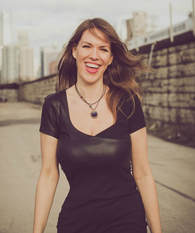
Melissa Wiley is a columnist for Storyacious and freelance food and culture writer living in Chicago. Her creative nonfiction has appeared in literary magazines including Lowestoft Chronicle, Gravel, Stirring: A Literary Collection, and Tin House Open Bar. Her traveling writing has been anthologized in Whereabouts: Stepping Out of Place, and you can find her go-go dancing at the odd surfer-space party.
